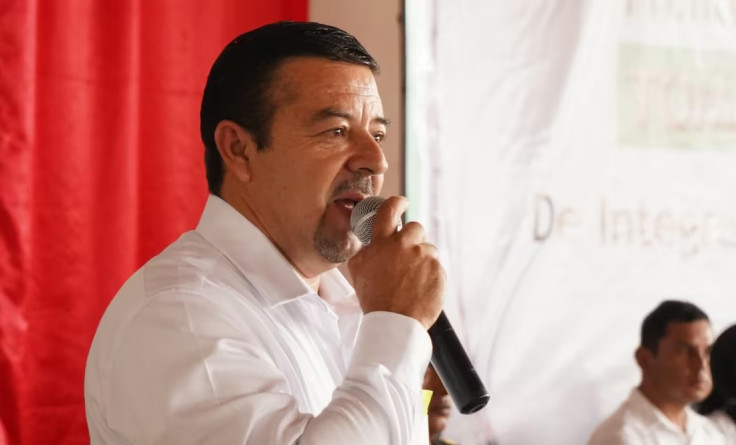
Authorities in Chiapas have arrested the interim mayor of Frontera Comalapa, José Antonio Villatoro. Villatoro faces accusations of corruption, forced disappearance, homicide, aggravated extortion and links to organized crime. Two other suspects, identified as Jorge "N" and Juan Manuel "N," were also detained.
Authorities confiscated a vehicle and two loaded rifles during the operation that resulted in Villatoro being transferred to a detention facility to await legal proceedings, according to El Pais. Frontera Comalapa, a town of 80,000 residents near the Guatemalan border, has strategic importance for trade and has been a target for organized crime. Villatoro became interim mayor in October following the kidnapping of the elected mayor, Aníbal Roblero, by criminal groups.
Governor Eduardo Ramírez stated on his X account that the the arrest is a sign that the state is making significant progress in restoring peace to Frontera Comalapa:
"In Frontera Comalapa, peace and tranquility are being restored. Farmers can return to their lands without fear of being used for blockades or checkpoints. They will never again be subjected to aggression or acts of violence. Local businesses, shops, and public transportation are resuming their normal pace. No one will have to pay 'protection fees' or suffer extortion for not belonging to a gang"
En Frontera Comalapa, la paz y la tranquilidad están siendo restauradas. Los campesinos pueden regresar a sus tierras sin temor a ser utilizados para bloqueos o filtros. Jamás volverán a ser objeto de agresiones ni de actos violentos que atenten contra sus vidas. Los locales,… pic.twitter.com/t9Wlge3f4R
— Eduardo Ramírez (@ramirezlalo_) January 5, 2025
Mexican President Claudia Sheinbaum's government has pledged to provide Ramirez with the resources necessary for his anti-corruption crusade. "I have good news for Chiapas: there will be full support from our Armed Forces, the National Guard, the Mexican Army, the Navy, and all the agencies involved in this responsibility," said the governor a few days back after a meeting with Sheinbaum.
Sheinbaum has recently adopted a more aggressive approach towards cartels and organized crime in Mexico, seemingly separating herself from her mentor and predecessor Andres Manuel Lopez Obrador, who prioritized addressing the root social causes of crime rather than attacking the cartels, coining the phrase "hugs not bullets" as an approach to stopping violence.
However, some experts, remain skeptical about the sustainability of the president's new strategy. Fergus Hodgson, author of The Latin American Red Pill and expert on Guatemala and the Mexican/Guatemala Border, shared his thoughts with The Latin Times, suggesting that any solution to the violence that currently affects Mexico should be resolved with the help of the United States:
"So long as Claudia Sheinbaum is an underling of AMLO, continuing his centralization agenda, she will struggle to address crime. Furthermore, her confrontation with Donald Trump is counterproductive. While I respect her desire for sovereignty, she has to acknowledge that Mexico's problems have become problems for the United States as well. Rather than exacerbating Trump's rhetoric, which can be hyperbolic, she would be wise to find common ground and work with U.S. officials towards achieving mutual wins for the rule of law"
Steve Hecht, editor at large of the Impunity Observer and based in Guatemala City, echoes Hodgson's suggestions that the larger context around Sheinbaum's strategy has to do with her relationship with Trump, who has indicated he will declare the cartels terrorist organizations. As Hecht told The Latin Times, Sheinbaum's success against cartels might hinge on how much she's willing to support Trump's potential policies:
"Undoubtedly, US forces can defeat the cartels. If Sheinbaum supports US force against them and manages to survive cartel wrath, she would have more control over her country than she has now. If she opposes US force, she will not incur cartel wrath, but will be severely weakened after the cartels have been dismantled by US force"
© 2025 Latin Times. All rights reserved. Do not reproduce without permission.





